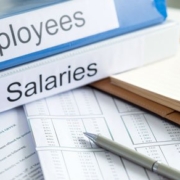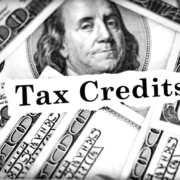Employers are incentivizing employees to get COVID-19 vaccinations
- Find out if employers can require employees to get the COVID-19 vaccine.
- Would an incentive program work for your business?
- Learn about incentive programs large companies have implemented.
Efforts continue to get as many Americans as possible vaccinated against COVID-19. Employers must contemplate their roles in promoting vaccinations — with many already taking action. If your organization has yet to formally decide on how openly you wish to push employees to get inoculated, it’s not too late. You still have time to roll out a well-communicated vaccine incentivization program. Fiducial offers suggestions for interested employers below.
Why not require the COVID-19 vaccination?
Many people are wondering whether employers can mandate that employees get vaccinated against COVID -19. The short answer is, generally, yes — as long as they allow exceptions.
More specifically, at the very end of 2020, the Equal Employment Opportunity Commission (EEOC) issued guidance to clarify. The guidance stipulates that employers may require most employees to provide proof of vaccination. However, employers must allow exceptions for employees with disabilities and those with sincerely held religious beliefs. The guidance also urged employers to engage in good faith efforts to seek accommodations for disabled or religious workers. Both of these groups may claim to be unable to receive vaccinations.
However, even if you follow the EEOC’s advice, you may still upset certain workers and even provoke legal action if you require most employees to obtain proof of an inoculation, even the COVID-19 vaccine. For this reason, it’s typically less risky to incentivize, rather than require, employees to get vaccinated.

What are some options?
Various options exist to motivate employees to get vaccinated, depending on how strongly you feel about the issue in relation to your workplace. For example, do you want to allocate actual dollars to the program? Some examples of incentives in use by larger employers right now include:
Cash or a gift card
Some companies are offering employees a one-time cash bonus or a widely used gift card for producing proof of COVID-19 vaccination. This isn’t a recommended approach for organizations dealing with cash flow issues but, for businesses where this is a viable option, money in employees’ pockets may be a strong incentive.
Offer wage-related incentives
Rather than a straight cash payment, some businesses are supplementing the hourly wages of employees who produce proof of COVID-19 vaccination. For example, a worker could receive an additional two to four hours of pay if they receive the vaccination.
Paid time off (PTO)
In relation to incentivizing employees to get a COVID-19 vaccine, PTO typically takes two forms: 1) PTO to get vaccinated, and 2) PTO as a “thank you.” Many employers are offering employees a block of PTO (four to eight hours) to get inoculated. You could then add another block of time as a show of gratitude. You should also consider offering paid sick time or paid leave for employees who suffer side effects from the vaccine.
The right choice
As of this writing, the EEOC hasn’t yet issued guidance specifically about COVID-19 vaccine incentives. We expect the agency to do so at some point. Fiducial can help you evaluate the financial feasibility of incentive options to assist you in making the right choice for your organization. Call Fiducial at 1-866-FIDUCIAL or make an appointment at one of our office locations to discuss your situation.
Ready to book an appointment now? Click here. Know someone who might need our services? We love referrals!
For more small business COVID-19 resources, visit Fiducial’s Coronavirus Update Center to find information on SBA loans, tax updates, the Paycheck Protection Program, paid sick and family leave, and more.









